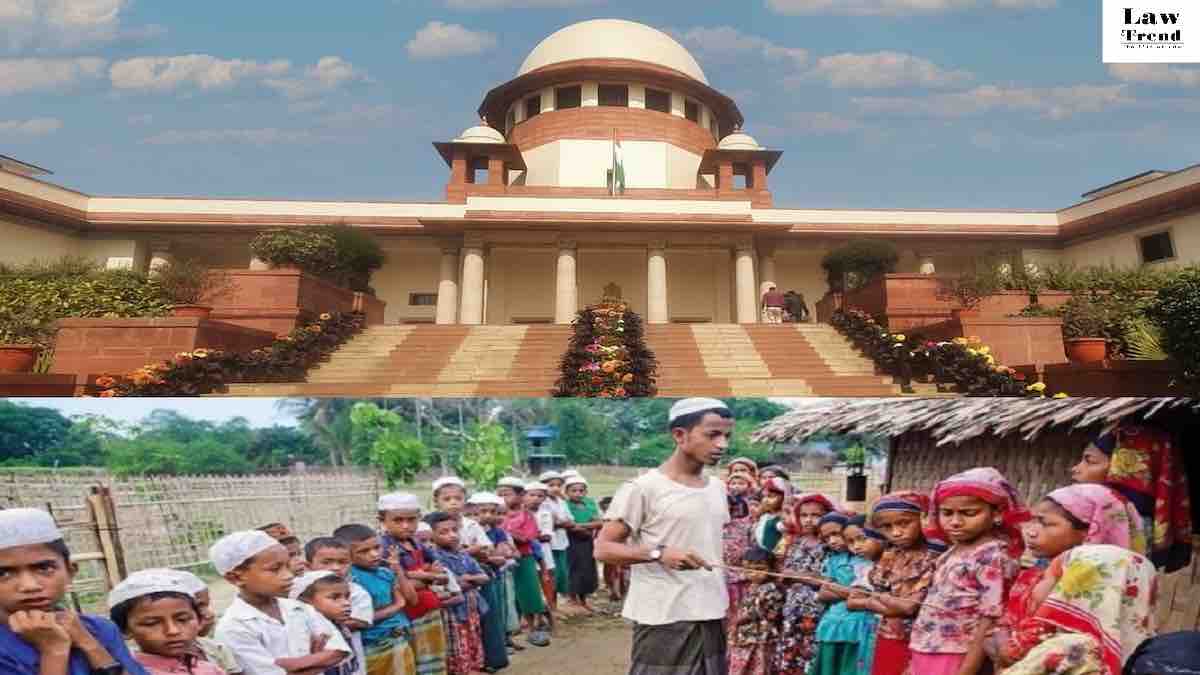The Supreme Court on Thursday framed critical legal questions regarding the status and treatment of Rohingyas residing in India, stating that the first major issue to be determined is whether they are “refugees” or “illegal entrants”.
A bench comprising Justices Surya Kant, Dipankar Datta, and N Kotiswar Singh made this observation while hearing a batch of petitions concerning Rohingyas. “The first major issue is simple — are they refugees or illegal entrants?” Justice Surya Kant remarked, underscoring that other questions will be consequential to this determination.
Key Legal Issues Framed
The bench outlined four broad issues that arise from the petitions:
- Refugee Status and Entitlements:
The Court posed the question, “Whether the Rohingyas are entitled to be declared as refugees? If so, what protections, privileges or rights are they entitled to?” - Deportation and Legality of Detention:
If Rohingyas are considered illegal entrants, the Court said it must examine whether the deportation actions by the Centre and state governments are legally justified.
Further, it asked, “Even if the Rohingyas have been held to be illegal entrants, can they be detained indefinitely or are they entitled to be released on bail, subject to such conditions as the court may deem fit?” - Living Conditions in Refugee Camps:
The Court noted that another issue raised is whether those Rohingyas who have not been detained and are residing in refugee camps are being provided basic amenities like drinking water, sanitation, and education. - Government’s Duty to Deport Under Law:
Finally, the bench questioned whether, in cases where Rohingyas are found to be illegal entrants, the Union and state governments are legally obligated to deport them in accordance with law.
Segregation of Petitions
During the hearing, the bench ordered the segregation of the petitions into three categories:
- Those specifically concerning Rohingyas,
- Petitions unrelated to the Rohingya issue, and
- One matter pertaining to an entirely different subject.
The Court indicated that these three groups would be listed for hearing on consecutive Wednesdays. It also clarified that on the issue of deportation, it may only lay down broad legal principles, leaving case-specific actions to the executive.
Arguments and Background
Counsel for the petitioners submitted that many of the petitions contained overlapping issues, particularly concerning the prolonged detention of Rohingyas. One lawyer argued that indefinite detention is legally unsustainable.
This comes against the backdrop of earlier proceedings in May, where the apex court refused to stay deportation efforts. On May 8, the Court had remarked that Rohingyas found to be foreigners under Indian law would have to be deported, stating that identity cards issued by the UN High Commissioner for Refugees may not be of help under domestic statutes.
On May 16, the Court had also pulled up some petitioners for making unverified claims that 43 Rohingyas, including women and children, were dropped in the Andaman Sea for deportation to Myanmar. Dismissing the plea, the bench had noted, “When the country is passing through a difficult time, you come out with fanciful ideas.”
The matter is now slated for continued hearing as the bench proceeds to determine these foundational questions with far-reaching implications for India’s refugee policy and its treatment of stateless individuals.




